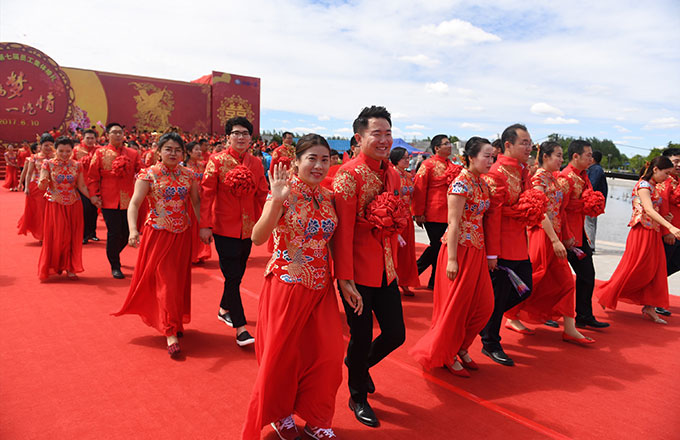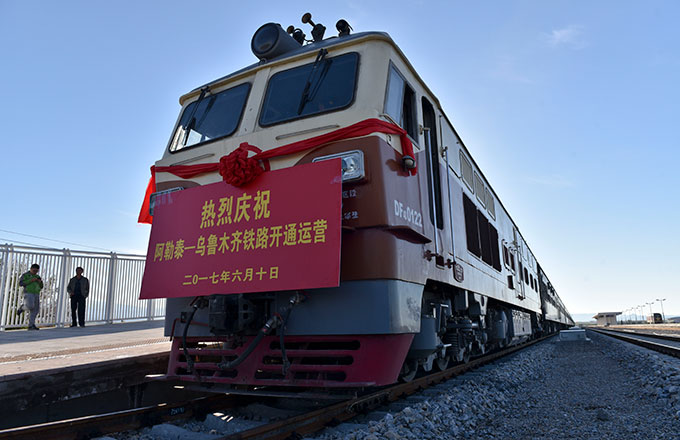Our basic position on the question of Hong Kong
September 24, 1982
Our basic position on the question of Hong Kong is clear. There are three major issues involved. One is sovereignty. Another is the way in which China will administer Hong Kong so as to maintain its prosperity after 1997. And still another is the need for the Chinese and British governments to hold appropriate discussions on ways to avoid major disturbances in Hong Kong during the 15 years between now and 1997.
On the question of sovereignty, China has no room for manoeuvre. To be frank, the question is not open to discussion. The time is ripe for making it unequivocally clear that China will recover Hong Kong in 1997. That is to say, China will recover not only the New Territories but also Hong Kong Island and Kowloon. It must be on that understanding that China and the United Kingdom hold talks on the ways and means of settling the Hong Kong question.
If China failed to recover Hong Kong in 1997, when the People's Republic will have been established for 48 years, no Chinese leaders or government would be able to justify themselves for that failure before the Chinese people or before the people of the world. It would mean that the present Chinese government was just like the government of the late Qing Dynasty and that the present Chinese leaders were just like Li Hongzhang!
We have waited for 33 years, and if we add another 15 years, that will make 48. We are able to wait for such a long time because we enjoy the full confidence of the people. But if we failed to recover Hong Kong in 15 years, the people would no longer have reason to trust us, and any Chinese government would have no alternative but to step down and voluntarily leave the political stage. Therefore, at this time -- I don't mean today, of course, but in no more than one or two years -- China will officially announce its decision to recover Hong Kong. We can wait another year or two, but definitely not longer.
In a broad sense, China's announcement of this policy decision will be beneficial to Britain too, because it will mean that 1997 will mark the end of the era of British colonial rule, and that will be welcomed by world public opinion. So the British government should support this policy decision. The Chinese and British governments should work together to handle the question of Hong Kong in a satisfactory manner.
We hope to have Britain's cooperation in maintaining prosperity in Hong Kong, but this does not mean that continued prosperity can only be ensured under British administration. It depends fundamentally on applying policies suitable to Hong Kong, under Chinese administration after the recovery. Hong Kong's current political and economic systems and even most of its laws can remain in force. Of course, some of them will be modified. Hong Kong will continue under capitalism, and many systems currently in use that are suitable will be maintained. Before formulating the principles and policies for the next 15 years and beyond, we shall have an extensive exchange of views with Hong Kong people from all walks of life. These principles and policies should be acceptable not only to the people of Hong Kong but also to foreign investors, and first of all to Britain, because they will benefit them too. We hope that the Chinese and British governments will engage in friendly consultations on this question, and we shall be glad to listen to suggestions put forward by the British government. All this will take time. Why must we wait one or two years before announcing our decision to recover Hong Kong? Because during that period we hope to consult with all sorts of people.
The main concern of people today is that if prosperity is not maintained in Hong Kong, it might retard China's drive for modernization. In my opinion, while we cannot say it would have no effect whatever on China's modernization, it would be a mistake to say the effect would be very great. If China had decided to base the success of its modernization drive on prosperity in Hong Kong, that policy decision would have been wrong. People are also concerned about the possible withdrawal of foreign capital from Hong Kong. But so long as our policies are appropriate, capital that leaves Hong Kong will return. Therefore, when we announce our decision to recover Hong Kong in 1997, we should at the same time announce the systems and policies that will be applied there after that date.
As to the assertion that once China declares its decision to recover Hong Kong in 1997 there will be disturbances there, I believe that while minor disturbances are inevitable, major ones can be avoided if China and Britain approach the question in a cooperative spirit. I also want to tell Madam that when the Chinese government made this policy decision, it took all eventualities into account. We even considered the possibility of something we would hate to see happen -- that is, we considered what we should do if serious disturbances occurred in Hong Kong during the 15-year transition period. The Chinese government would then be compelled to reconsider the timing and manner of the recovery. If the announcement of the recovery of Hong Kong has, as Madam put it, ``a disastrous effect'', we shall face that disaster squarely and make a new policy decision. I hope that beginning from Madam's current visit, government officials of the two countries will conduct earnest consultations through diplomatic channels to find ways of avoiding any disasters.
I am convinced that we can work out policies that should be applied after the recovery of Hong Kong and that will be acceptable to all quarters. I have no concern on that score. What I am concerned about is how to make a smooth transition over the next 15 years. I am concerned that there may be major disturbances in this period, man-made disturbances. These could be created not just by foreigners but also by Chinese -- but chiefly by Britons. It is very easy to create disturbances. This is precisely the problem our consultations will be designed to solve. The governments of the two countries should not only refrain from doing anything that would impair the prosperity of Hong Kong, but they should also ensure that entrepreneurs and people in all other lines of work refrain as well. There must be no major disturbances in Hong Kong during the 15-year transition period, and affairs there must be administered even better after the Chinese recovery in 1997.
We suggest that an agreement be reached that the two sides will begin consultations on the question of Hong Kong through diplomatic channels. The prerequisite is the understanding that China will recover Hong Kong in 1997. On this basis we should discuss how to carry out the transition successfully in the next 15 years and what to do in Hong Kong after the end of that period.
(A talk with British Prime Minister Margaret Thatcher.)
(From Selected Works of Deng Xiaoping, Volume III <1982-1992>)
- China issues guidelines to develop 'all-for-one' tourism demonstration zones
- Torrential rain triggers disaster in Southwest China
- Harvest time for wheat reapers in Shanxi
- Over 200 couples marry in Changchun group wedding
- Calligraphy tops other icons of Chinese culture, WeChat data shows





















